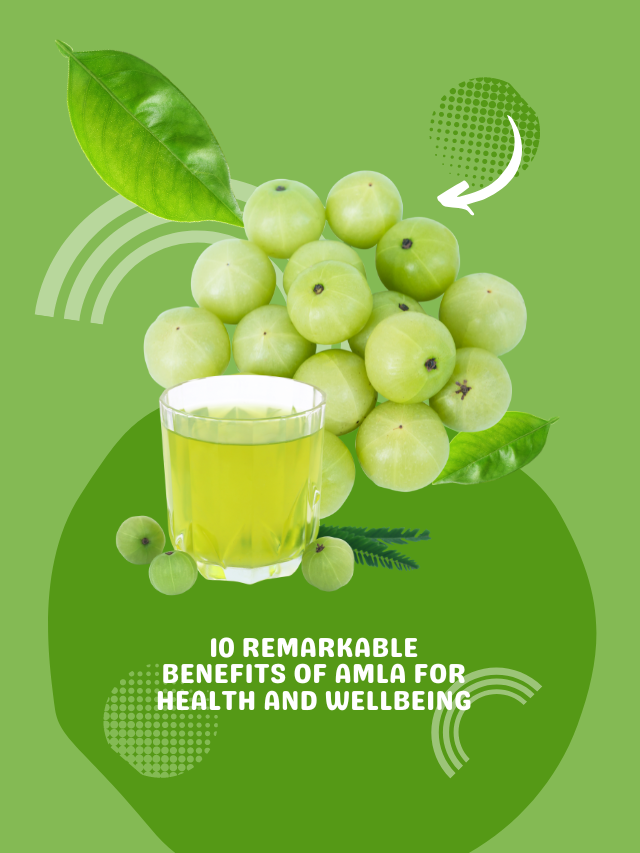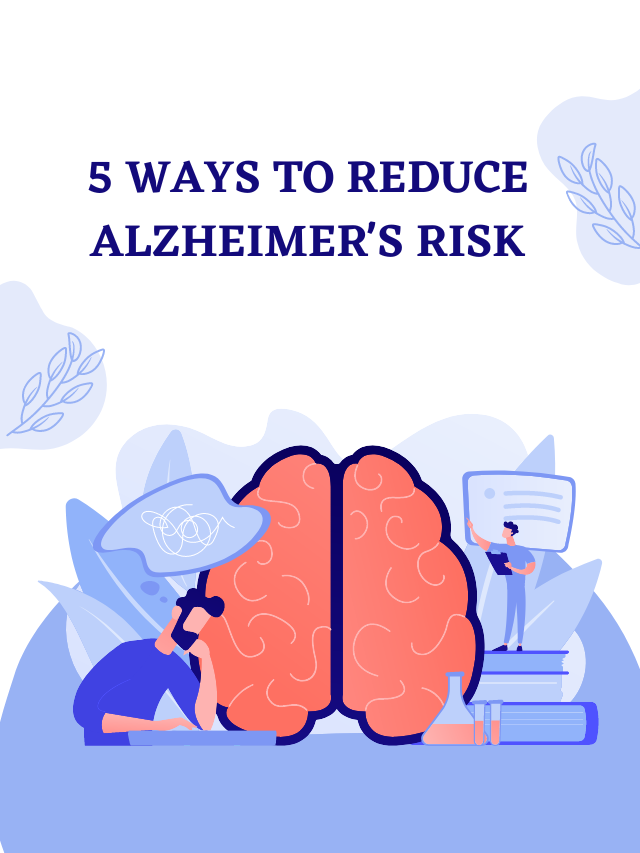Author: kukholmohela
Post-Covid Pandemic Traveling Fear: How to Overcome It?
Eurovision 2023: Top 5 rankers
10 remarkable benefits of Amla for Health and Welness
iPhone 15: 5 likely upgrades to be seen
How to reduce Alzheimer’s risk: 5 ways
“How chat GPT is helpful: 10 ways”
How to Live a Balanced and Joyful Life: Building a Foundation
A Balanced and Joyful Life: Building A Foundation

A Balanced and Joyful Life
Living a balanced and joyful Life: A balanced life is one in which a person can successfully manage and prioritize several facets of their life, such as work, family, relationships, health, and hobbies, among others. It is a state of equilibrium where a person is content in all facets of their life and has the time and energy management skills necessary to accomplish their objectives and preserve their general well-being. Setting appropriate boundaries, controlling stress, and placing self-care first are all components of a balanced life. Achieving and maintaining a balanced life might be difficult, but it is necessary for living a purposeful and happy life.
A joyful existence is one in which a person is joyous feels content, happy, and fulfilled. One experiences a profound sense of happiness and gratitude for their existence and the experiences it has to give in this condition of being. A pleasant existence includes having wholesome relationships, achieving worthwhile objectives, taking care of oneself, and finding delight in the here and now. It also entails having a positive outlook and the capacity to remain happy despite adversity. Focusing on what makes you happy and fulfilled, expressing gratitude, and developing a positive outlook on life are all ways to live a joyful life.
For many reasons, living a balanced and happy life is essential.
- Health: We may live longer and better lives when we put our physical, mental, and emotional health first. This means that in order to maintain or restore balance, we must be mindful of factors like exercise, sleep, and stress.
- connections: Managing work, family, and other obligations while keeping strong connections with those around us can be difficult. We feel less stress and have a better support system when we have healthy relationships.
- Productivity: Having a balanced existence enables us to work and live more productively in all areas of our lives. In fact, taking breaks and caring for ourselves can make us more productive.

There are different kinds of health, and each one is critical to total wellbeing. Here are some of the most typical health conditions:
1. Physical well-being
The condition of our body and how effectively it performs are referred to as our physical health. It entails preserving a healthy body weight, exercising frequently, getting enough rest, and adhering to a balanced and nourishing diet. A high quality of life and the prevention of chronic diseases like heart disease, diabetes, and obesity depend on good physical health.
Exercise regularly for at least 30 minutes a day, whether it be cardio or strength training, is crucial to maintaining excellent physical health. Additionally important is maintaining a healthy diet that includes nutrient-rich foods.
The maintenance of physical health is crucial for overall wellbeing and can aid in the prevention of a variety of health issues.
Following are some pointers for preserving physical health:
- Regular physical activity can help to lower the risk of chronic diseases including diabetes and heart disease, enhance cardiovascular health, and build muscle and bone strength. At least 150 minutes per week of moderate-intensity exercise, such as brisk walking, cycling, or swimming, should be your goal.
- Maintain a nutritious diet: A well-balanced diet can offer the vitamins, minerals, and fiber that are necessary for optimal health. Eat a mix of fruits, vegetables, whole grains, lean meats, and healthy fats as your main focus.
- Get adequate sleep or rest: Sleep or rest is crucial for overall wellbeing and good health. Sleep is advised,
2. Spiritual health:
Our sense of connection, meaning, and purpose in life is referred to as having a strong spiritual foundation. It entails discovering meaning and purpose in life and may entail routines like mindfulness, meditation, or prayer. Our values, beliefs, and sense of identity are all directly related to our spiritual health, which can make us feel more stable and centered in our daily lives.
Exploring our values and beliefs, joining a group of like-minded people, and practicing inner calm and connection can all contribute to maintaining good spiritual health. This could be going to spiritual spaces, spending time in the outdoors, doing yoga, or engaging in other types of meditation.
Maintaining spiritual health can be an important aspect of overall well-being. Here are some tips for maintaining spiritual health:
- Meditate: Meditation can be a powerful tool for connecting with your inner self and improving spiritual health. Find a quiet, peaceful place to sit and meditate regularly to help calm the mind and reduce stress.
- Practice mindfulness: Mindfulness involves being present in the moment and focusing on your thoughts, feelings, and surroundings without judgment. It can help improve spiritual health by fostering a greater awareness of your inner self and the world around you.
- Engage in prayer or religious practices: For those who are religious, prayer and other religious practices can be a powerful way to connect with a higher power and cultivate spiritual health.
- Connect with nature: Spending time in nature can be a great way to foster spiritual health. Take a walk in a park or spend time in a garden to connect with the natural world and promote a sense of peace and well-being.
- Practice gratitude: Cultivate a sense of gratitude by focusing on the positive aspects of your life and expressing gratitude for the blessings you have. This can help improve overall well-being and foster a greater sense of spiritual health.
3. Mental wellness
The term “mental health” describes how we feel and think. It covers our ability to meet life’s problems, forge good relationships, and exhibit pleasant emotions. It encompasses our ideas, feelings, and behaviors. A fulfilling existence depends on having good mental health, which is critical for general well-being.
Self-care, stress management, and getting help when required are all important components of maintaining healthy mental health. This may entail doing relaxation-promoting exercises like yoga or meditation, establishing boundaries to safeguard our mental health, and seeking treatment or counselling if we are experiencing mental health problems. Building good connections and engaging in acts of empathy and compassion towards oneself and others are also crucial.
Just as important as maintaining physical health is maintaining good mental health. Following are some pointers for preserving mental health:
- Engage in mindful awareness: Mindfulness entails being attentive of the current moment while paying attention to one’s thoughts, feelings, and environment without passing judgement. This can help reduce stress and anxiety while enhancing general mental health.
- Meditate: Meditation is a technique that can aid in lowering anxiety and stress levels, enhancing focus, and fostering a sense of peace and relaxation. It entails remaining still, paying attention to your breath, and objectively monitoring your thoughts.
- Consider therapy: Therapy can assist you in resolving emotional problems, acquiring coping mechanisms, and enhancing interpersonal relationships. People who suffer from mental health conditions like depression or anxiety may find it especially beneficial.
4. Emotional well-being:
Our capacity to express and manage our emotions in a healthy manner is tied to this sort of health. Building healthy relationships, expressing our emotions, and managing stress are all aspects of emotional health.
Our capacity to comprehend, communicate, and control our emotions in a positive and healthy manner is referred to as emotional wellness. It entails being able to identify and manage a variety of emotions, including both positive and negative emotions like grief, rage, and fear as well as positive emotions like appreciation and joy. Maintaining strong relationships and leading a satisfying life require good emotional health, which is critical for general well-being.
Building emotional resilience, engaging in self-care, and getting support when required are all important components of maintaining healthy emotional health.
Here are some pointers for preserving emotional health:
- Take care of yourself: This entails getting enough rest, eating a balanced diet, and exercising frequently. Making time for activities you enjoy, like reading, listening to music, or spending time in nature, is another aspect of self-care.
- Embrace mindfulness: Mindfulness entails being in the moment without passing judgement. This can be accomplished by engaging in yoga, meditation, or even just taking a few minutes each day to concentrate on your breathing and let go of any racing thoughts.
- Establish and preserve good relationships: Surround yourself with positive, encouraging individuals. Spend time talking to loved ones and creating enduring connections.
- Develop an attitude of gratitude: Consider your blessings each day.
5. Social health:
Our capacity to establish and preserve fruitful interactions with others is referred to as social health. It comprises having the capacity to interact with people in a healthy and constructive way and to build deep relationships with our friends, family, and neighbors. A fulfilling existence depends on having good social health, which is crucial for general well-being.
Building solid relationships, honing communication skills, and taking part in activities that encourage social connection are all necessary for maintaining healthy social health. This could be participating in social activities, giving back to our communities, or going to social gatherings.
As a result of the enormous influence that our social relationships can have on our wellbeing, social health and mental and emotional health are intimately related. It’s critical to give social health priority.
6. Environmental health:
In terms of our health and wellbeing, the link between people and the built and natural environments is referred to as environmental health. It entails the investigation and control of environmental aspects of the environment that may have an impact on human health, including air and water quality, climate change, exposure to poisons and pollutants, and accessibility to green spaces.
Making efforts to conserve and preserve our environment, such as lowering waste and pollution, saving resources, and promoting sustainable practices, are all part of maintaining good environmental health. It also entails promoting laws and procedures that safeguard the environment and advance public health.
Following are some suggestions for preserving social wellbeing:
- Develop and sustain relationships: Social welfare depends on having healthy connections with one’s family, friends, and neighbors. Spend time interacting with people and forming deep bonds.
- Take part in social activities: Joining social groups like sports teams, hobby clubs, or volunteer work can help you make new friends and fortify your existing relationships.
- Use active listening techniques: When conversing with people, use active listening techniques. This entails listening intently, interrogating, and empathetically reacting to the speaker.
- Respect diversity: Be aware of and respectful of others’ differences, particularly those based on culture, ethnicity, and religion. Celebrate diversity and make an effort to absorb new ideas.
- Establish boundaries: It’s critical to do so in partnerships.
The following advice will help you maintain environmental health:
- Reduce waste and safeguard the environment by practicing the three R’s: reduce, reuse, and recycle. Consume fewer single-use items, repurpose things when you can, and recycle anything that can be put to another use.
- Conserve water and energy: Pay attention to the amount of water and energy you use. Use energy-efficient appliances, shorten showers, and turn off lights while leaving a room.
- Select eco-friendly goods: opt for goods that are made of sustainable materials, biodegradable or compostable, and free of toxic or dangerous substances.
- Encourage environmentally friendly transportation: Instead of driving a car, think about taking the bus, biking, or walking. If you must drive, consider carpooling or selecting a fuel-efficient model.
- Preserve natural resources: Preserve

Relationships between different types of health
- Physical health affects mental health: Stress, worry, and sadness can be brought on by physical pain or sickness, which can have a negative effect on your mental health. In contrast, exercising regularly and eating a balanced diet can enhance your mental health by lowering stress and elevating mood.
- Mental health can affect physical health: By weakening the immune system and raising the risk of chronic illnesses, stress, anxiety, and depression can have a detrimental effect on physical health. Taking care of mental health problems can lead to better physical health outcomes.
- A strong feeling of purpose and connection to a higher power can give a sense of inner calm and emotional stability, which can have an impact on mental and emotional health.
- The ability to effectively manage one’s emotions can result in connections with others that are healthier and more fulfilling, which can enhance one’s social health.
- Social connections and support systems can help people cope with stress and adversity, enhance mental health outcomes, and maintain good mental health.
- Access to green areas and clean air can have a favorable impact on physical health while exposure to pollutants and pollution can have a detrimental impact
In summary, general health and wellness depend on leading a balanced and happy life. The various forms of health are interrelated, and ignoring one might have a negative effect on another. A holistic approach to health and wellbeing is crucial, taking into account one’s physical, mental, emotional, social, spiritual, and environmental well-being. Self-care, which includes exercise, healthy eating, sleep, mindfulness, meditation, and therapy, can help people live happier, more meaningful lives while also improving their overall health. It is never too late to start putting your health first, and even tiny actions towards a balanced and pleasant existence can make a big difference in how well you are feeling overall.
Table of Contents
10 impact of Technology on manual labor
“Top-rated Web hosting providers of the year”









